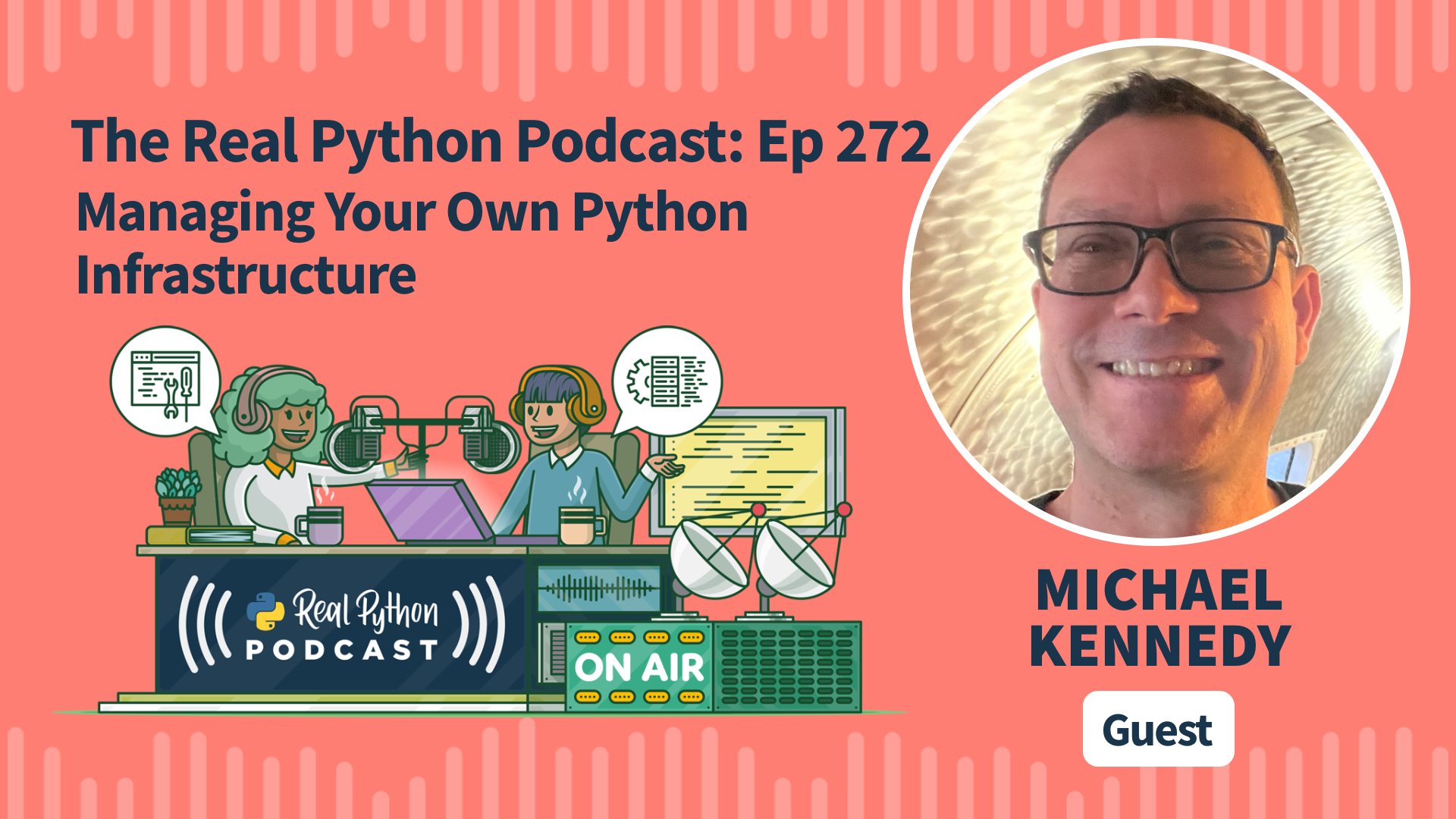
"How do you deploy your Python application without getting locked into an expensive cloud-based service? This week on the show, Michael Kennedy from the Talk Python podcast returns to discuss his new book, "Talk Python in Production." Michael runs multiple Python applications online, including a training site, blog, and two podcasts. While searching for the best solution for hosting his business, he documented his findings in a book."
"We talk about containerizing Python applications, generating static sites, preparing for traffic spikes, and avoiding cloud service lock-in. Course Spotlight: Speed Up Python With Concurrency Learn what concurrency means in Python and why you might want to use it. You'll see a simple, non-concurrent approach and then look into why you'd want threading, asyncio, or multiprocessing. Topics: 00:24:40 - Using Quart web framework 00:25:50 - Embracing Docker 00:32:39 - Sharing a single powerful machine allows for individual peaks 00:38:30 - Minimal cloud lock-in 00:54:33 - Talking about the prices for hosting 00:59:09 - Creating static sites"
"00:40:04 - Using OrbStack for local builds and testing 00:42:07 - Coolify as a Docker host 00:47:14 - Moving away from Google analytics and a GDPR rant 00:50:43 - Diving deep into web tech of ngnix, SSL, and CDNs 01:06:22 - Invitation to come back to discuss AI and agents 01:10:06 - What are you excited about in the world of Python? 00:20:14 - Stack-Native vs Cloud-Native 00:25:50 - Embracing Docker 00:32:39 - Sharing a single powerful machine allows for individual peaks"
Containerization and Docker provide reproducible deployments and simplify moving applications between hosts while reducing dependence on managed cloud services. Static site generation offers low-cost, highly scalable delivery for content-heavy sites and reduces runtime surface area. Local build tools like OrbStack and Docker hosts such as Coolify enable testing and small-scale hosting without major provider lock-in. Attention to web infrastructure—nginx, SSL, CDNs—and analytics choices affects privacy, performance, and cost. Planning for traffic spikes and sharing a single powerful machine among services can balance resource needs. Concurrency techniques (threading, asyncio, multiprocessing) can improve application throughput where appropriate.
Read at Realpython
Unable to calculate read time
Collection
[
|
...
]